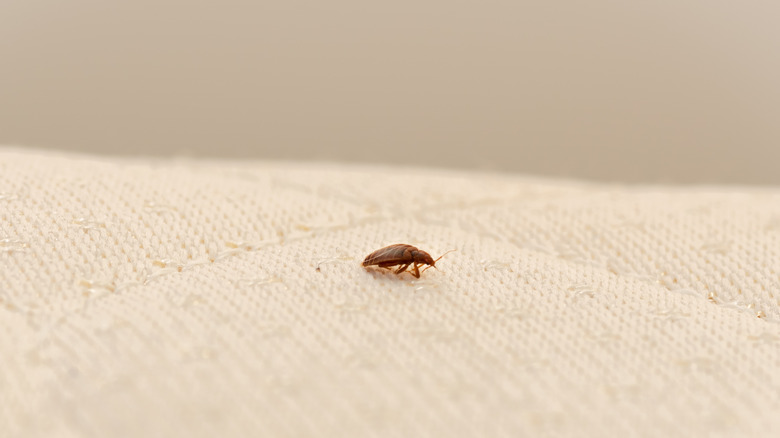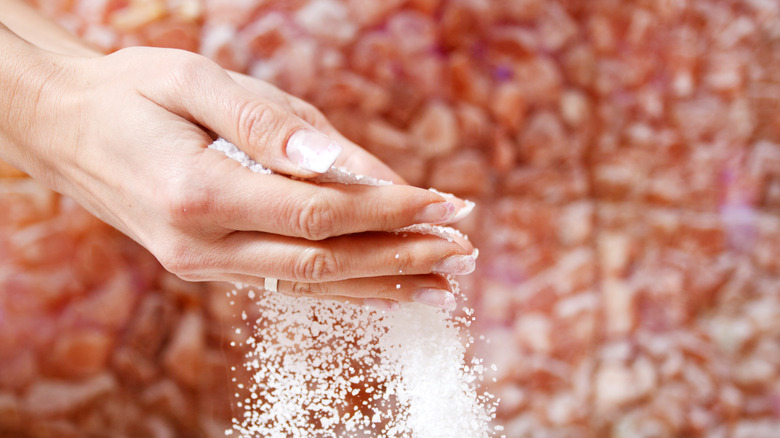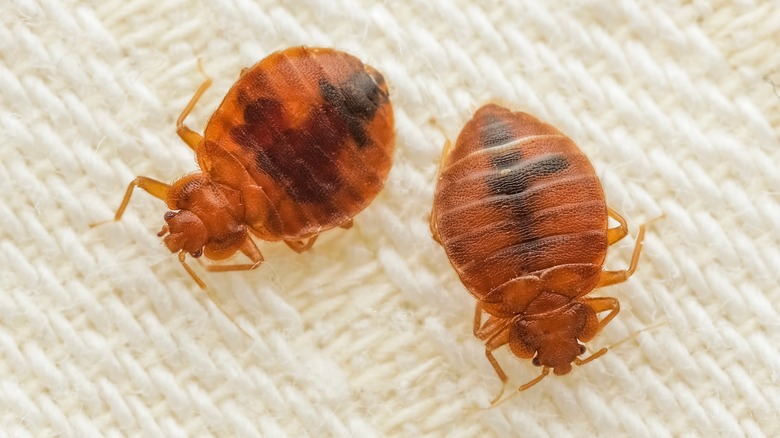Why You Should Think Twice Before Using Salt To Get Rid Of Bed Bugs
If you are seeing bed bugs in your home, you may be ready to try just about any way to get rid of bed bugs. After all, these creepy parasites are a significant nuisance, emerging at night to bite humans, leaving itchy welts. Occasionally, they could cause the victim to go into anaphylactic shock. Additionally, they are notoriously hard to get rid of, even among pest control companies. They are tiny insects that are good at hiding, making it difficult to find all of them to kill them.
Consequently, many myths about killing bed bugs simply don't work, such as extreme cold and using over-the-counter insect-killing sprays. You may have heard salt is a good way to eliminate these pests. But is it another myth? Unfortunately, it seems as though it is a myth that does not work. There just isn't any proof that salt works to dehydrate these insects and kill them in large enough numbers to affect an infestation. It may work occasionally on a few insects but not on a colony.
Although it is true that one of the most common ways for these parasites to die is through dehydration, it would be difficult to cause them to ingest enough salt to cause dehydration. Bed bugs do not drink water, so their only source of hydration and food is through ingesting the blood of a victim. If the insect goes long enough without feeding, it could cause death through dehydration.
So what kinds of bed bug treatment myths involve using salt?
Even though there isn't any hardcore proof that salt will eliminate bed bugs in large numbers, it probably doesn't hurt to try it if you want. You can try sprinkling table salt on the bed bugs when you see them. Occasionally, it may kill these insects, but there isn't much evidence that it works even part of the time. These pests have a waxy shell that prevents the granules from reaching any part of the body, which could result in dehydration. If the insect had a crack in the shell, you might get lucky and have a granule penetrate the shell, but this is highly unlikely.
Along those same lines, mixing table salt with water to create a spray doesn't affect these parasites. They do not eat or ingest anything but blood, so they won't drink the water spray, nor will it likely be able to effectively penetrate the waxy shell. The spray mixture shouldn't affect them, barring something extremely odd occurring.
Although you may see some suggestions online that Epsom salt kills bed bugs, this is not the case, either. It has the same problems as table salt. However, if you see these insects' eggs, which are about the size of a pinhead and have a pearl color, you can sprinkle Epsom salt on these eggs to dry them out and kill them before they hatch. This should work, as the eggs will absorb the granules and dehydrate.
Why do people believe salt is effective at killing bed bugs?
Since there is almost no evidence that applying salt to bed bugs will kill them, why do so many online articles and rumors suggest using it? Much of the misconception probably centers on the fact that Epsom salt can kill and repel slugs, snails, and many different types of insects that may appear in your garden. Additionally, it works on cockroaches, termites, and other insects that may attempt to invade your home. People may simply believe salt can handle any kind of insect, including bed bugs, without completely researching it.
Another reason why people may make this assumption is because there are a few substances that do work to kill bed bugs on contact. Certain powders, such as diatomaceous earth, can eliminate bed bugs when they walk through it. The diatomaceous earth sticks to the body of the parasite upon contact and then scratches away the waxy layer on the insect's shell. This causes it to dehydrate and die. However, bed bugs often will attempt to avoid any contact with this powder, rendering it ineffective.
Ultimately, people are probably willing to believe almost any home remedy for killing bed bugs because of the psychological effects of having an infestation. People may have nightmares, insomnia, and anxiety because of the presence of these parasites. Ultimately, because of the challenges of finding and killing these pests, reaching out to a professional exterminator is the best choice nearly always.


